Confluence (n)
“A coming or flowing together, the junction of two rivers, especially rivers of approximately equal width, an act or process of merging, joining, meeting place, gathering, a point of mixing”.
Confluence is the Western Collaborative Conservation Network’s (WCCN) biennial gathering that provides an indispensable space for learning and professional community-building within the collaborative conservation field. For the complex, landscape-scale challenges that we face today, collaboration is essential for successful land stewardship, and the professional network and skills to do that work successfully are fostered over a lifetime. To support those doing collaborative conservation on the ground, and to elevate us towards a thriving future, the WCCN recently hosted our 3rd Confluence, a three-day gathering in Tucson, Arizona from April 2 to 4, 2024.
Benefits of Participating in Confluence Include:

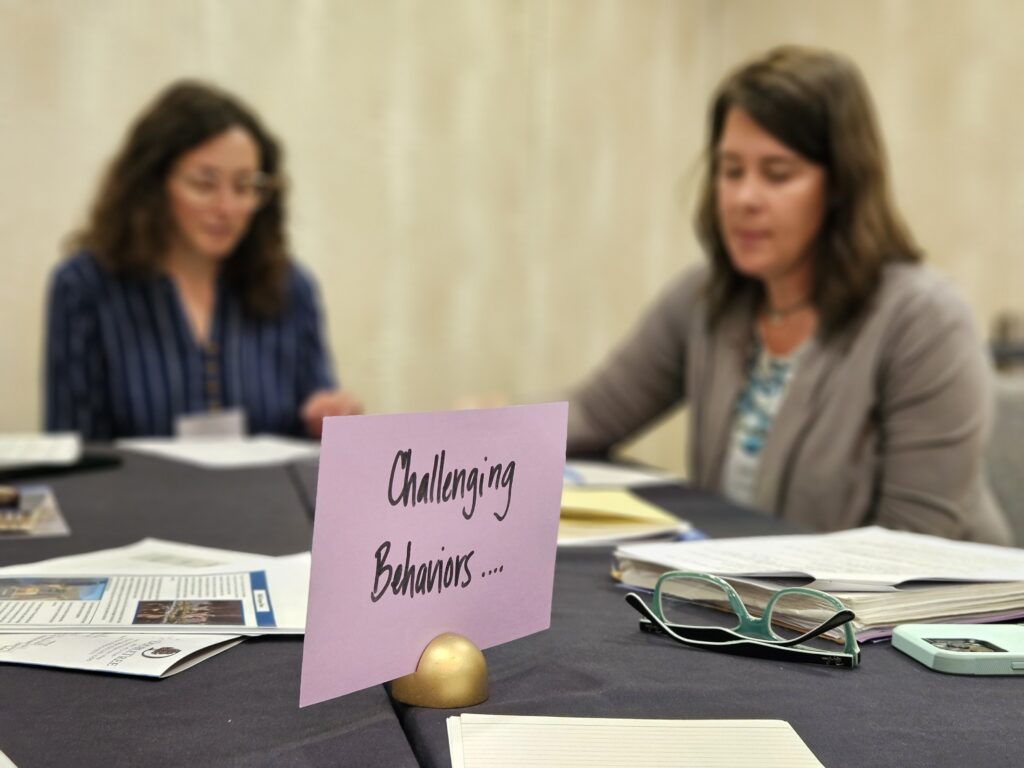
Thank you to all who joined us for Confluence 2024 in Tucson, Arizona!
Agenda & Program
Click here to see our Agenda for Confluence, and find our Program here!
Compelling Questions
This year we delved into stories of collaborative conservation success, leveraging funding and related resources to secure capacity and sustainability, and building bridges across boundaries and demographics via our Compelling Questions:
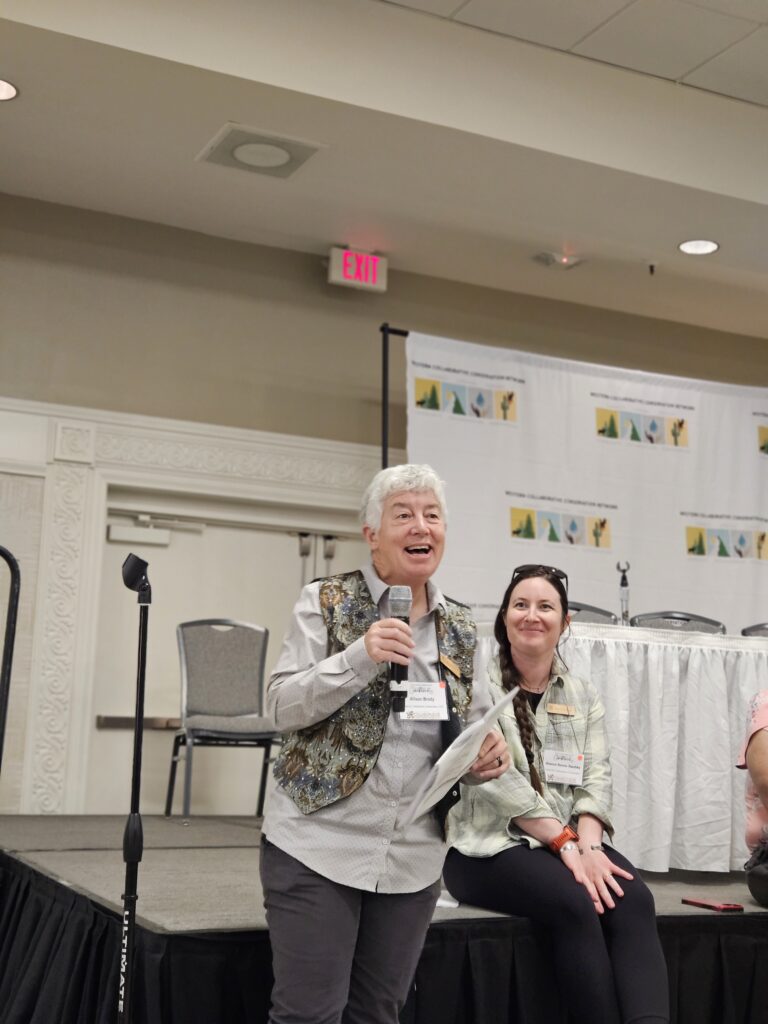
The Emerging Leadership Working Group played match maker – and you joined in the fun!
The fewer people you know in a room, the more intimidating it can feel. To combat that intimidation, we paired participants interested in being mentees/mentors as an opportunity to connect and learn from each other.
We hope that this effort will help build community, spark new relationships across the Network, and connect emerging leaders with the broader network of collaborative conservation.
Learn more about our Mentorship Match.
Confluence 2024 included field trips to visit and learn about collaborative conservation work being done in and around Tucson, AZ. Check back here for updates on the exciting projects we visited.
Trips included:
Missed out on Confluence 2024?
If you are looking to connect with other professionals about the skills, practices, and theories of collaborative conservation, you can connect with the Western Collaborative Conservation Network year-round.
Our community includes all elements of the collaborative conservation sphere from practitioners, researchers, land owners, students, community members, and staff from local, state, and federal agencies. You are a partner of the WCCN if you subscribe to our newsletter, if you are part of a Working Group, and even if you just follow us on social media!
We welcome collaborative conservation practitioners, researchers, community members, and students whether you are interested in connecting for the first time, reconnecting, or continuing your involvement with the WCCN community.
Please join us!
For questions on Confluence 2024, please contact WCCN Director, Aireona Raschke, at araschke@colostate.edu.
If you enjoyed Confluence, consider joining in on WCCN’s other community-building and action oriented working groups. (If you aren’t already engaged with us!)
To stay up-to-date with details about WCCN events, subscribe to the WCCN newsletter.

We would like to acknowledge and thank the funders and supporters that are making Confluence 2024 possible. Meet the Sponsors here!
Benefactors: $10,000 and above
Leaders: $5,000 – $9,999

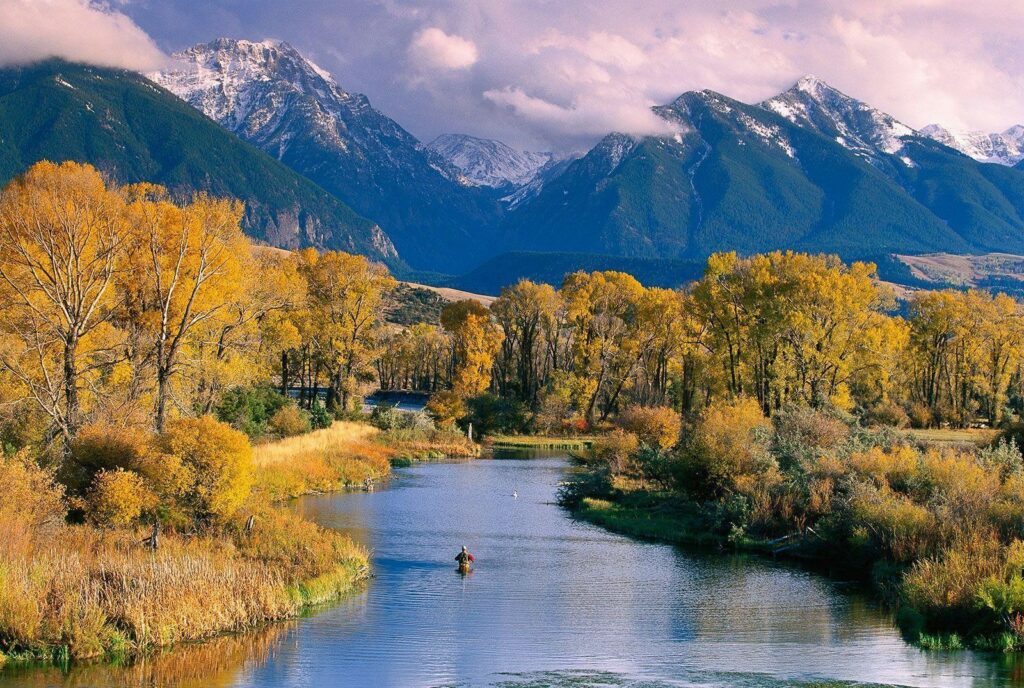
Thank you to all who joined us for Confluence 2022 on September 19-21, in beautiful Paradise Valley, Montana.
We loved gathering in person with you all and re-connecting as a network with members across 11 states. During Confluence 2022, we discussed pressing issues in our collaborative work, catalyzed action, and provided capacity-building opportunities to participants.
Find key takeaways, summaries of the keynote presentations, and speaker reflections and resources from this year’s Confluence in our Confluence 2022 Key Takeaways Report.
Confluence 2022 focused on three key collaborative conservation topics:
We took a deep look at Paradise Valley, Montana and used it as a lens to learn about collaborative conservation throughout the American West.
Confluence is a perfect conference for conservation practitioners, academics, students, and volunteers from across the Western United States who are experienced or interested in collaboration as a key element of their work.
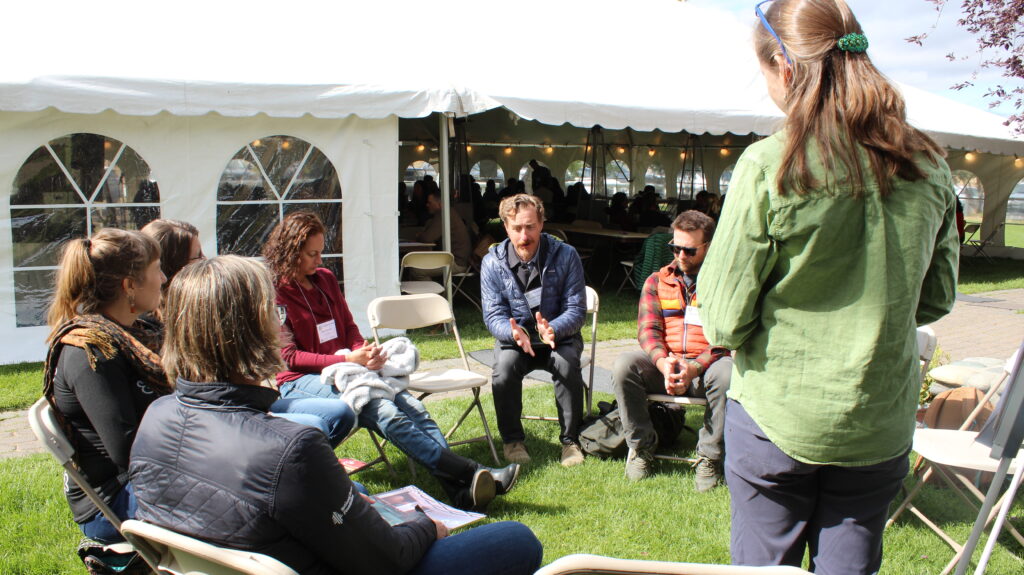
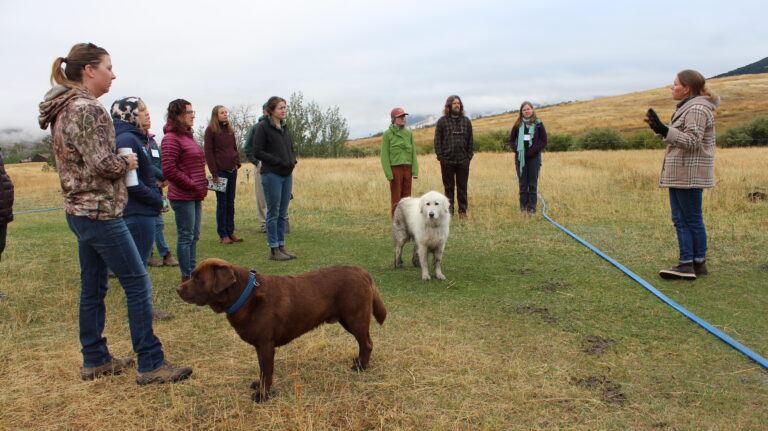
MENTORING OPPORTUNITIES: We support emerging leaders through Confluence by connecting people looking for mentors with folks willing to support through mentorship. Read more about the mentorship program here!
PEER-TO-PEER: Confluence 2022 featured six concurrent workshops (aka peer-to-peer sessions) focused on skill-building, and cross-pollination exercises that allowed for enhanced networking among participants and “equipping” opportunities. Topics of the workshops included: (1) measuring collaborative impacts, (2) emerging leadership, (3) storytelling, communications and media, (4) conservation finance, (5) the collaborator’s toolbox, and (6) cross-cultural partnerships.
“ECO-TERRAIN” CASE STUDIES: The “Eco-terrain” case studies were four place-based scenarios in Montana that showcased new (and old) collaborative partnerships among Montana residents, and address various social and environmental challenges. Together, we learned and problem solved through the exploration of these case studies.
SCHOLARSHIPS: Full and partial scholarships, as well as travel stipends, are made available by the WCCN Team each Confluence.
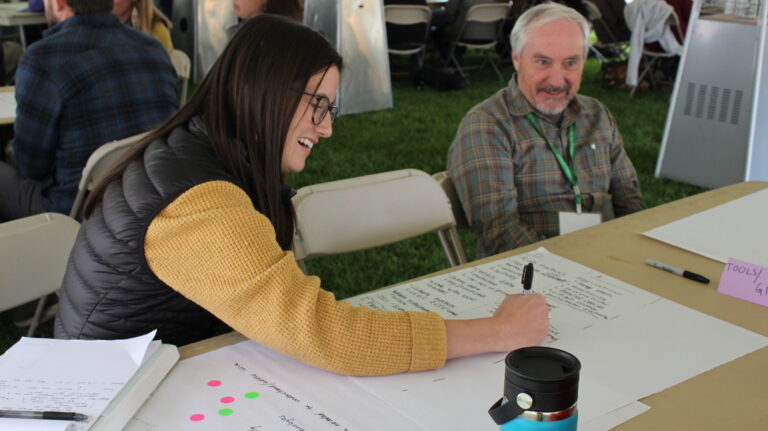
FUNDING ACKNOWLEDGEMENTS
We would like to acknowledge and thank the funders and supporters that made Confluence 2022 possible:
Benefactors: $10,000 and above
Alper Family Foundation
Ed Warner and Jackie Erickson
World Wildlife Fund, Northern Great Plains Program
Leaders: $5,000 – $9,999
Center for Collaborative Conservation
The Kendeda Fund
University of Montana, Center for Natural Resources and Environmental Policy
US FWS Partners for Fish and Wildlife
Guarantors: $2,500 – $4,999
National Parks and Conservation Association
The Nature Conservancy in Montana
Champions: $1,000 – $2,499
Bill and Dana Milton
Heart of the Rockies Initiative
Montana Forest Collaboration Network
Montana Watershed Coordination Council
National Forest Foundation
Salazar Center for North American Conservation
Western Landowners Alliance
Guardians: Up to $999
American Conservation Experience
BioRegions International
Jessica Western
John Sanderson
Kestrel Aerial Services, Chris Boyer
Montana Wilderness Association
Park County Environmental Council
Rox Hicks
Rural Voices for Conservation Coalition
SeaBird Strategies
Slam
South North Nexus
Swan Valley Connections
The Common Ground Project
Wild MT
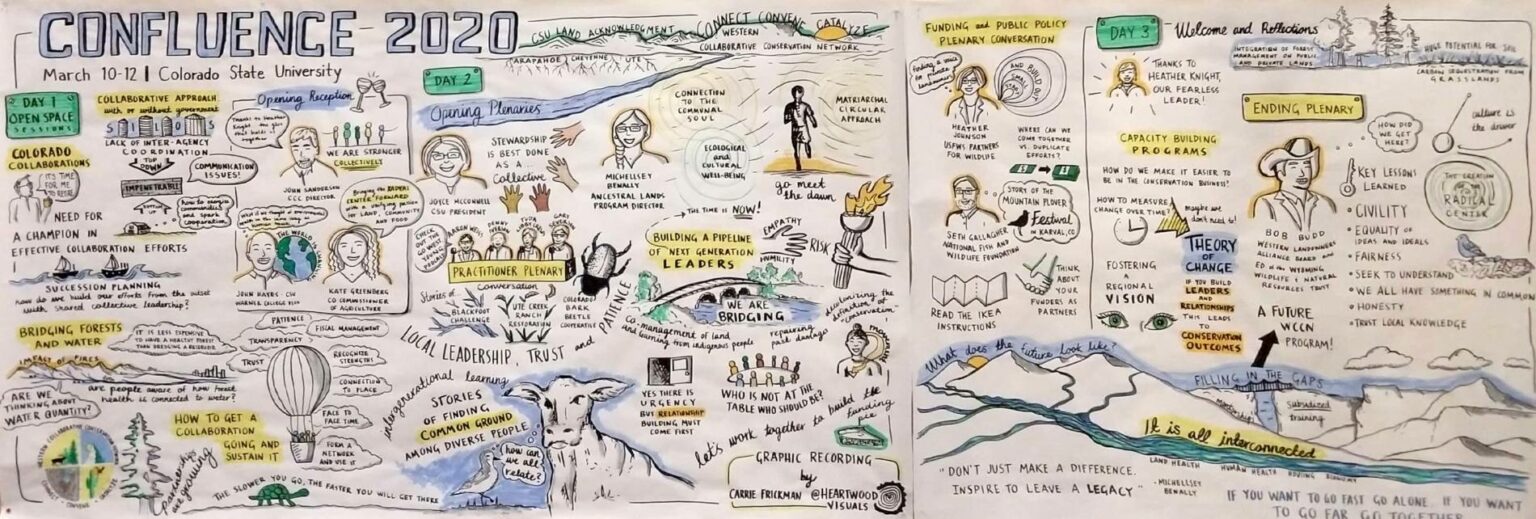
The WCCN held its inaugural Confluence in March 2020.
Members of collaborative conservation groups and their support organizations gathered from across the West to CONNECT to peers, CONVENE to learn new collaboration skills and practice new tools, and CATALZE action on issues that limit conservation success.
The Confluence program, re-cap video, report, and post-Confluence evaluation can be found here:
363 Michael Smith Building
Warner College of Natural Resources
1401 Campus Delivery,
Colorado State University
Fort Collins, CO 80523
SEE MAP

Apply to CSU | Contact CSU | Disclaimer | Equal Opportunity | Privacy Statement
© 2021 Colorado State University